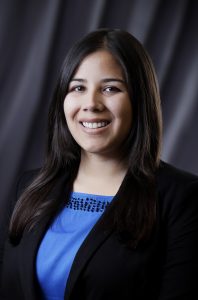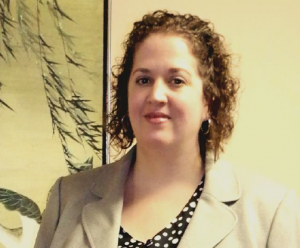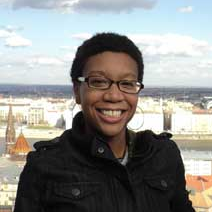
Ariana Santiago is the Instruction Librarian at the University of Houston Libraries. She is the 2016-18 Outreach Director of the New Members Round Table, and is a 2017 ALA Emerging Leader.
What inspired you to be a part of NMRT?
I was really drawn in by the name of the round table, and that it is for ďnew members.Ē Itís great that ALA has divisions and round tables for so many different specializations and interests. However, at the time I joined ALA, I wasnít sure what direction I would go in my career or which units of ALA would be most beneficial for me. I knew that in the New Members Round Table, I would at least find other newbies like me!
How long were you involved with NMRT?
I joined ALA and NMRT in 2012, when I was towards the end of my library school program. So about five years.
How has NMRT helped you grow professionally?
Iíve been fortunate to be able to attend a few ALA Conferences, where NMRT hosts several programs and services. One time I got my resume reviewed at the NMRT Resume Review Service Ė the reviewer gave me some really great advice about how to adapt my CV for the specific job I was applying for (and yes, I got the job!). Other NMRT conference programs, such as the Annual Social or Conference Orientation, have been fun ways to meet people in all types of libraries.
How has your involvement with NMRT impacted your involvement with ALA?
Getting involved in NMRT was my first exposure to doing professional service. The NMRT Handbook Committee was my very first committee appointment Ė it was a very minimal time investment for me, yet I still learned a lot about committee-work and the round table itself. Since then, I have stayed involved in NMRT, serving on and chairing several committees. Additionally, gaining that professional service experience led me to seek active involvement in other areas of ALA, such as the ACRL Instruction Section.
NMRT has had a positive impact on my involvement in ALA, however, I will caution that itís also important to know your limits and be realistic about the amount of professional service you can do. I have realized at times that I had too many professional commitments Ė donít try to take on too much!
What aspects of NMRT would you recommend to our members and why?
Earlier I mentioned the Resume Review Service, which is a fantastic service available at ALA Midwinter and Annual conferences. However, people may not know that the Resume Review Service is also offered online via email all year round. I recommend this because itís so helpful to have someone give feedback on your resume, but a lot of people arenít able to travel to conferences for the in-person review. NMRT also has an email list-serv, which I recommend because itís a good way to get updates on NMRT, learn about job openings, and keep up on relevant discussions within the profession.
Do you have any additional advice for our members about getting involved with NMRT and ALA?
Itís actually pretty easy to get involved in NMRT! A call for volunteers goes out around springtime for committee appointments, and no previous experience is required. In general, joining list-servs in your areas of interest and following relevant social media accounts is a good way to keep an eye out for opportunities (including scholarships and professional development). Also, if you have questions about getting involved in a certain area of ALA, try asking around within NMRT – there are people with experience in all kinds of librarianship that could help answer your questions.
Save
Save





